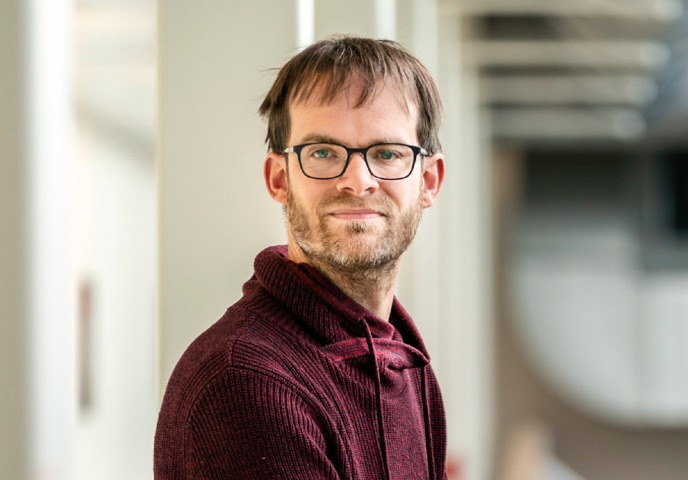NWO Impact Explorer voor onderzoek door Van den Bogaart naar vroege opsporing van kleine hoeveelheden delende kankercellen in bloed

Geert van den Bogaart, hoogleraar Moleculaire Immunologie aan de Rijksuniversiteit Groningen, heeft een Impact Explorer subsidie van de Nederlandse Organisatie voor Wetenschappelijk Onderzoek (NWO) ontvangen. Met deze financiering kan hij de potentiële maatschappelijke impact van zijn onderzoek naar de vroegtijdige opsporing van kleine hoeveelheden delende kankercellen in bloed valideren.
Het Impact Explorer-programma ondersteunt het onderzoeken van de maatschappelijke waarde van een onverwachte wetenschappelijke ontdekking of inzicht. Het betreft momenteel een proefprogramma. Op basis van de resultaten zal worden besloten of de financiering in de toekomst structureel zal worden toegekend.
Innovatieve gevoelige test voor het opsporen van kleine hoeveelheden delende kankercellen in bloed
Van den Bogaart, zijn collega Dr. Frans Bianchi en hun teams hebben een zeer gevoelige test ontwikkeld om heel kleine hoeveelheden delende kankercellen in biologische vloeistoffen op te sporen. Met de nieuwe test worden bepaalde beperkingen overwonnen die spelen bij de huidige tests, die technisch complex en duur of niet voldoende gevoelig zijn. De nieuwe test kan de nauwkeurigheid van kankerdiagnoses verbeteren en recidive voorkomen.
Relevant onderzoek: kleine hoeveelheden achtergebleven delende kankercellen kunnen leiden tot (recidive) tumorvorming
De nieuwe test is belangrijk omdat na kankerbehandeling kleine hoeveelheden kankercellen achter kunnen blijven die het begin van (hernieuwde) tumorvorming kunnen zijn. Dit fenomeen wordt minimale restziekte (MRD) genoemd. Het heeft een enorme impact op de overleving van kankerpatiënten. MRD-onderzoek is vooral belangrijk bij bloedkanker, zoals leukemie en lymfoom, waarbij kankercellen zich via de bloedbaan door het lichaam kunnen verspreiden. De test kan echter ook worden gebruikt om uitzaaiingen van solide tumoren, zoals bij borstkanker of longkanker, na een operatie of chemotherapie in de gaten te houden.
Volgende stap: beoordeling van effectiviteit en haalbaarheid
De onderzoeksgroep wil nu de effectiviteit van de nieuwe test beoordelen en een routekaart voor de klinische toepassing ervan ontwikkelen. Er staan samenwerkingsverbanden met wetenschappers en onderzoekers uit de industrie gepland om het eerste bewijs te verkrijgen van de haalbaarheid van deze test voor het opsporen van kanker.
Meer informatie
Meer nieuws
-
17 februari 2026
De lange zoektocht naar nieuwe fysica
-
10 februari 2026
Waarom slechts een klein aantal planeten geschikt is voor leven
